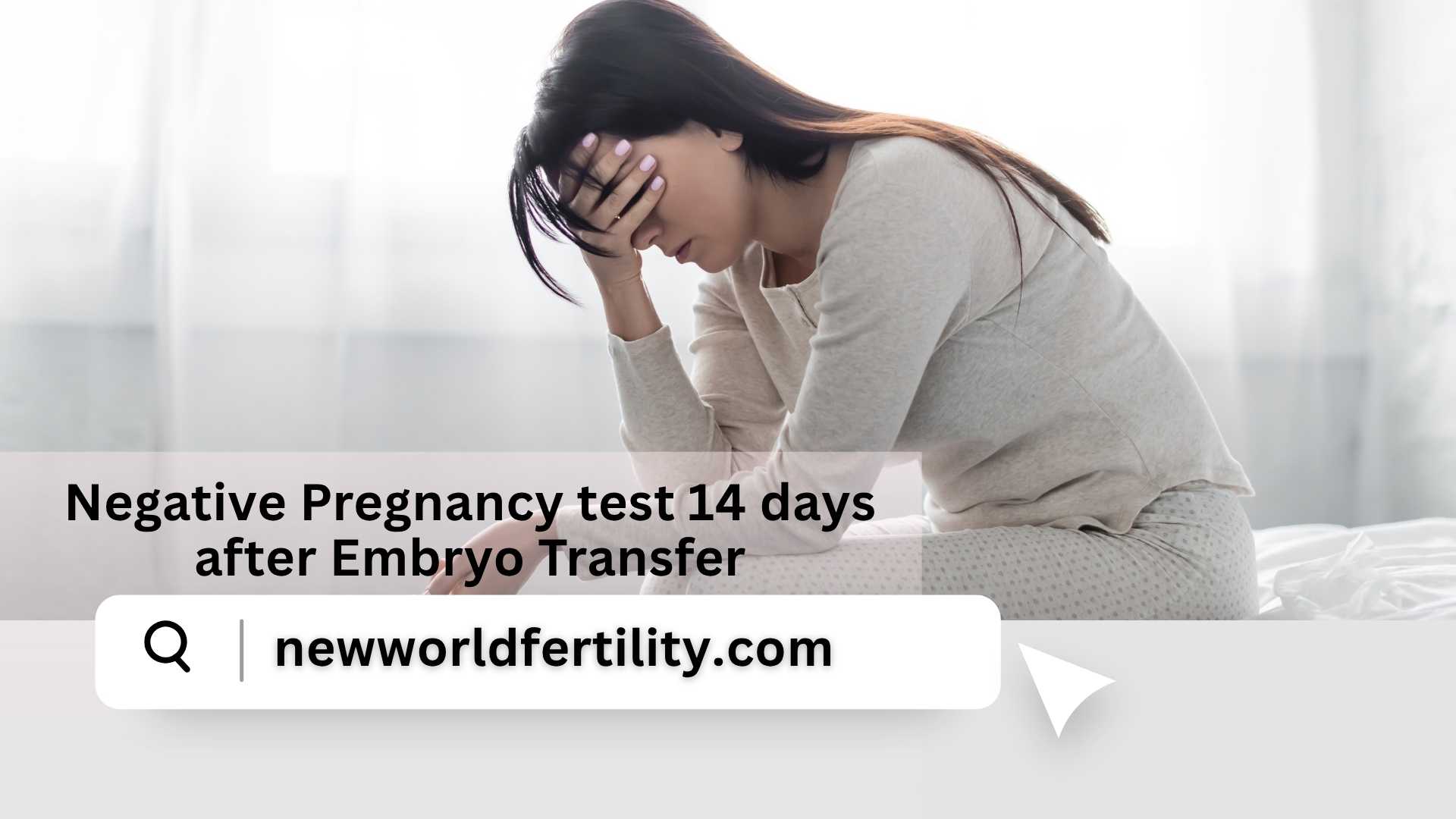Negative Pregnancy Test 14 Days After Embryo Transfer
Experiencing a negative pregnancy test 14 days after an embryo transfer can be disheartening, especially after the emotional and physical investment in the in-vitro fertilization (IVF) process. While it’s natural to feel disappointed, understanding the reasons behind a negative result and knowing what to do next can offer guidance during this challenging time.
What Does a Negative Pregnancy Test Mean?
A negative pregnancy test means that there is no detectable amount of the hormone human chorionic gonadotropin (hCG) in your urine. hCG is a hormone that is produced by the placenta after a fertilized egg implants in the uterus.
A negative pregnancy test 14 days after an ET does not necessarily mean that the embryo did not implant. It is possible that the embryo implanted but is not yet producing enough hCG to be detected on a pregnancy test.
What Might Have Caused a Negative Pregnancy Test?
There are many possible reasons for a negative pregnancy test 14 days after an ET. Some of the most common include:
The embryo did not implant: This is the most common reason for a negative pregnancy test. There are many reasons why an embryo may not implant, including a poor-quality embryo, a uterine abnormality, or a hormonal imbalance.
The embryo implanted but stopped developing: Sometimes, an embryo will implant but will stop developing for unknown reasons.
The pregnancy test was taken too early: It is possible that the embryo implanted but is not yet producing enough hCG to be detected on a pregnancy test.
The pregnancy test was taken incorrectly: It is important to follow the instructions on the pregnancy test carefully to ensure that it is taken correctly.
What to do Next
If you receive a negative pregnancy test 14 days after an ET, it is important to talk to your doctor. They can help you understand what might have caused the negative test and discuss your options for moving forward.
Your doctor may recommend that you:
Wait a few days and take another pregnancy test: It is possible that the embryo implanted but is not yet producing enough hCG to be detected on a pregnancy test.
Have a blood test to check your hCG levels: A blood test can be more sensitive than a urine pregnancy test and may be able to detect a pregnancy earlier.
Have an ultrasound to check for a pregnancy: An ultrasound can be used to visualize the uterus and look for a pregnancy sac.
Consider another cycle of IVF: If you have had multiple unsuccessful IVF cycles, your doctor may recommend that you consider other fertility treatments, such as donor eggs or adoption.
The New World Fertility Centre in Delhi
The New World Fertility Centre in Delhi is a world-class fertility clinic that offers a wide range of fertility treatments. The centre has a team of experienced fertility specialists who are dedicated to helping patients achieve their dream of having a baby.
The New World Fertility Centre offers a variety of support services to patients who have received a negative pregnancy test. These services include:
Counseling: The centre offers counseling services to help patients cope with the emotional challenges of infertility.
Support groups: The centre offers support groups for patients who have experienced a negative pregnancy test.
Financial assistance: The centre may be able to offer financial assistance to patients who are struggling to afford fertility treatments.
Conclusion
A negative pregnancy test 14 days after an embryo transfer can be a devastating experience. However, it is important to remember that there are many possible reasons for a negative test, and there are things you can do to move forward.
If you have received a negative pregnancy test, it is important to talk to your doctor. They can help you understand what might have caused the negative test and discuss your options for moving forward.
The New World Fertility Centre in Delhi is the best fertility clinic that offers a wide range of support services to patients who have experienced a negative pregnancy test.
Frequently Asked Questions (FAQs)
1. What does a negative pregnancy test 14 days after embryo transfer mean?
A negative pregnancy test 14 days after embryo transfer generally indicates that the embryo did not implant successfully in the uterine lining. It suggests that the IVF cycle may not have resulted in pregnancy, though follow-up blood tests may be required to confirm the result.
2. Can there still be a chance of pregnancy despite a negative test on day 14?
While a negative test 14 days after transfer typically means no pregnancy, there are rare cases where late implantation occurs. If advised by your doctor, a repeat test or follow-up blood work can confirm the final result.
3. What are the common reasons for a negative pregnancy test after IVF?
Some common reasons include:
- Poor embryo quality
- A thin or unresponsive endometrial lining
- Chromosomal abnormalities in the embryo
- Immune or blood clotting disorders
- Poor synchronization between the embryo and the uterine lining
- External factors like stress or hormonal imbalances
4. What should I do after a negative pregnancy test?
After a negative result, it’s important to consult your fertility specialist to review your IVF cycle and discuss possible reasons for failure. Your doctor may suggest further testing, changes in treatment protocol, or lifestyle adjustments to improve future chances.
5. Can I try another IVF cycle after a negative test?
Yes, many couples go on to have successful pregnancies after multiple IVF cycles. Your doctor will assess your individual situation and may suggest modifications to improve the likelihood of success in future cycles.

 Oct-09-2025
Oct-09-2025